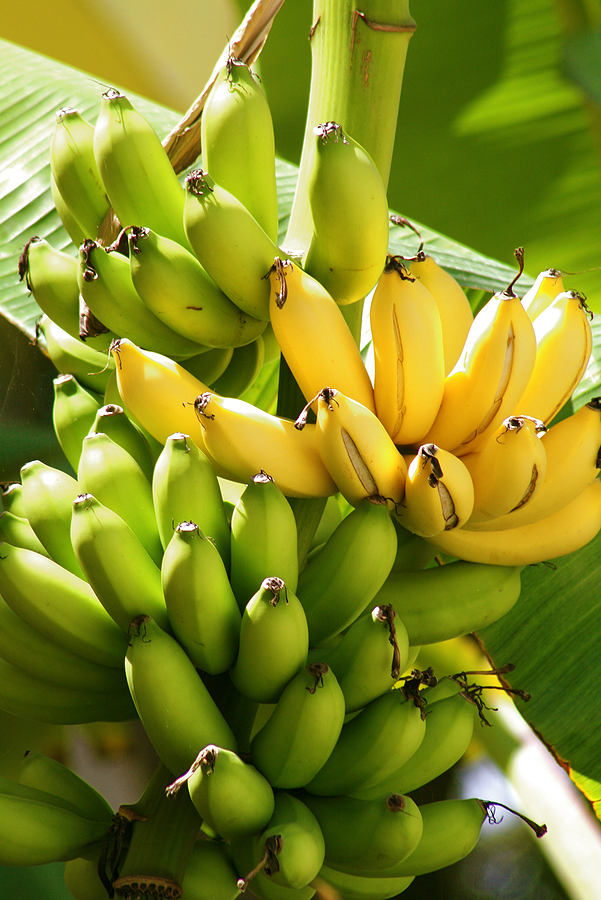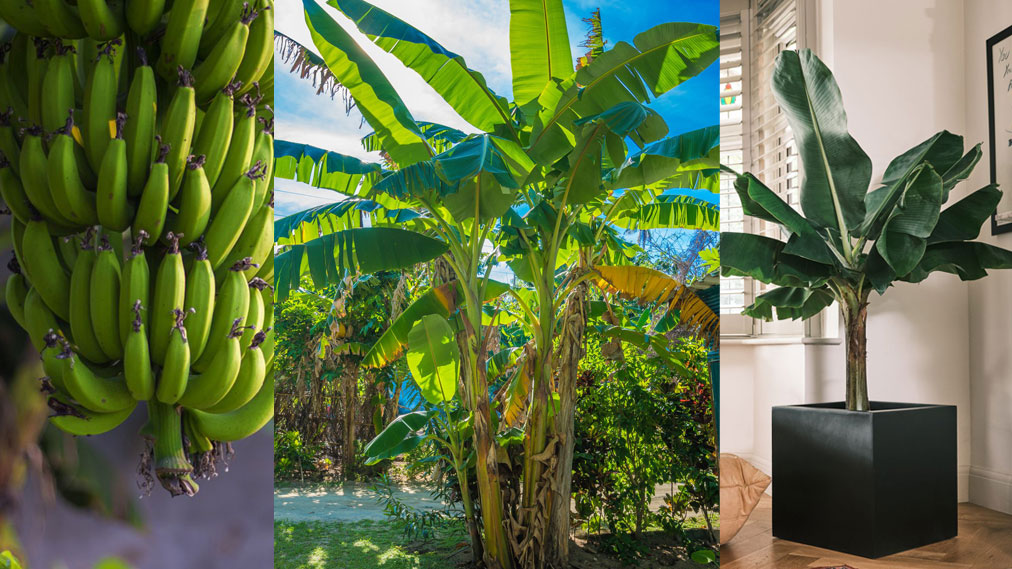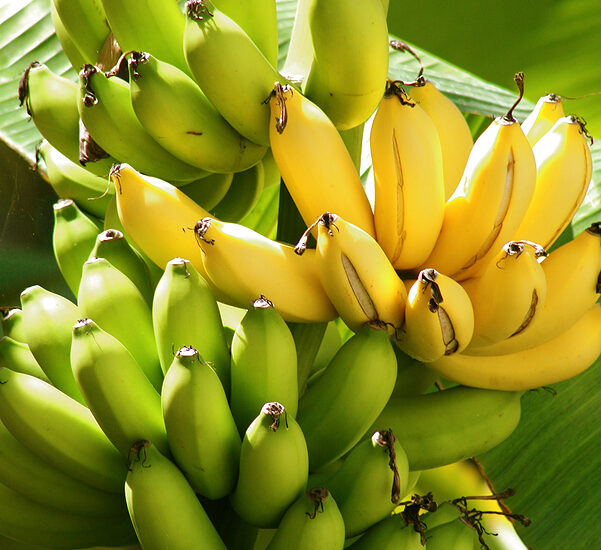Bananas are a staple food in most tropical countries. Banana plants have been domesticated plants for thousands of years. Bananas are a staple food in most tropical and many subtropical countries.
Edible banana species have been crossed and recrossed for centuries resulting in two main types of banana–the sweet, dessert banana and the starchier, cooking banana. Musa acuminata is a sweet, fresh-eating banana. Musta balbisiana is the starchier cooking banana.

Bananas are a staple food in most tropical countries. Banana plants have been domesticated plants for thousands of years. Bananas are a staple food in most tropical and many subtropical countries.
Edible banana species have been crossed and recrossed for centuries resulting in two main types of banana–the sweet, dessert banana and the starchier, cooking banana. Musa acuminata is a sweet, fresh-eating banana. Musta balbisiana is the starchier cooking banana.

Bananas grow from rhizomes in much the same way as potatoes. While they are herbaceous perennials, they grow to a tree-like size in a single season. The trunk of a banana plant is not woody, it is a series of overlapping stalks that grow up around each other forming a nearly hollow tube.
Bananas are commonly picked green. When bananas are allowed to ripen on the plants, they spoil. Ripened off the plant at room temperature, bananas can be eaten fresh or cooked. They can be steamed, boiled, fried, or baked. Bananas can also be dried and frozen.
